Building a Kinder, Healthier Future
ALSO INSIDE:

Fostering Social Inclusion Through Unified PE Society of Health and Physical Educators Spring 2019
WITH

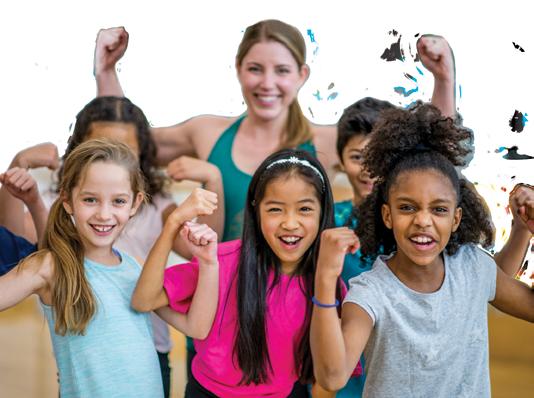


Engage ALL Students in Health & Wellness 348500 12/18 Get the tools and resources you need to support students of all skill and ability levels, encourage active participation, and enable success. Shop our selection of Sportime best-sellers, class packs, adapted PE solutions, sports equipment, assessment tools, and more. Plus, look for Teacher Recommended Products in the 2019 Sportime catalog and on the web. Shop Teacher Recommended Products at SchoolSpecialty.com /physical-education Exclusive Sponsor of the SHAPE America® Teacher of the Year Program SHOP NOW at SchoolSpecialty.com/physical-education SHOP NOW at SchoolSpecialty.com/physical-education SchoolSpecialty.com/physical-education • 888-388-3224
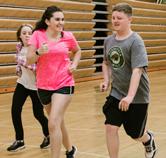


Spring 2019 • Momentum 3 Spring 2019 DEPARTMENTS Contents FEATURES Fostering Social Inclusion Through Unified PE 12 Building a Kinder, Healthier Future Students and schools benefit from new service-learning program — health. moves. minds.™ 14 A Look Back at #SHAPETampa Highlights from an EPIC national convention! 16 MANY THANKS TO OUR ADVERTISERS, FUNDERS AND SPONSORS: CVS Health Foundation Potatoes USA School Specialty | Sportime Cover photo taken at Sibley East Elementary School in Gaylord, MN PRESIDENT’S MESSAGE 5 Raising the Bar With health. moves. minds.™ FROM THE CEO 6 The Mental Health Crisis Is Here — We Need to Help NATIONAL OFFICERS 7 Welcome to Our New Board Members TEACHER TO TEACHER 8 6 Tips for Integrating Social and Emotional Learning Into Your Class ADVOCACY 10 SPEAK Out! Day Success REFLECTION 11 Create a Caring Community HPE MARKETPLACE GUIDE 20 DISTRICTS 22 New District Leaders RESOURCE ROUNDUP 24 Focus on Health & PE RESEARCH 25 Updates From the Research Council FINAL BELL 26 10 Questions With Jackie Conkle
SHAPE AMERICA
BOARD OF DIRECTORS
PRESIDENT
Jamie Sparks
PRESIDENT-ELECT
Roger Jackson
PAST PRESIDENT
Judy LoBianco
CEO
Stephanie Morris
DIRECTORS
Kymm Ballard
Sarah Benes
Clayton Ellis
Brett Fuller
Amy Heuer
Ann Paulls-Neal
Mario Reyna
Anne S. Wiggin
In my role as managing editor of two SHAPE America publications, I read a lot about current issues in schools — including the growing number of students with anxiety, depression, and other mental health challenges.
In my role as mom of two daughters, I’ve witnessed this firsthand.
When a child is struggling, parents will try anything to help them. But with mental health issues, so much is out of the parents’ control. The child must be open to getting help and implementing the recommended behavioral changes. And, as kids get older, they’re often less willing to accept suggestions and try new things.
That’s why it’s important to teach children about mental wellness at a young age — and why I’m so excited about SHAPE America’s new educational service-learning program.

INTRODUCING health. moves. minds.™
MOMENTUM PRODUCTION
MANAGING EDITOR
Larissa Kulczycky
DESIGNER
Kathleen Dyson
DEADLINES
Winter – December 1
Spring – April 1
Fall – August 1
CONTACT US
SHAPE America
1900 Association Drive Reston, VA 20191-1598
momentum@shapeamerica.org
800-213-7193
Momentum (ISSN: 2329-1516) is published three times a year by the Society of Health and Physical Educators (SHAPE America), 1900 Association Drive, Reston, Virginia 20191-1598.
Copyright © 2019. All rights reserved. This magazine may not be reproduced in whole or in part without written permission of the publisher. Opinions expressed in signed articles are those of the authors and do not necessarily reflect official policy of SHAPE America.
SHAPE America offers advertising opportunities in this publication. For more information on the advantages of advertising as well as rates please email advertising@shapeamerica.org.
SHAPE America does not verify or substantiate the claims of advertisers. As a matter of law, it is the responsibility of an advertiser, not the publisher, to substantiate its claims.
The health. moves. minds. program teaches young people how to take care of their body and their mind. For many of the teachers who are piloting the program this spring, the mental wellness component is the critical part of the equation. Their students need to learn coping skills, and this program provides the tools and resources to help teach those skills.
I hope after reading the cover story “Building a Kinder, Healthier Future” — and the rest of the issue — you’ll be inspired to learn more at healthmovesminds.org.
When health. moves. minds. kicks off nationally in fall 2019, we’d love to see your school on the list. You can change a child’s life for the better!
Larissa Kulczycky Managing Editor lkulczycky@shapeamerica.org
4 Momentum • Spring 2019
NoteEditor’s Follow us on Twitter @SHAPE_America Like SHAPE America on Facebook Follow SHAPE America on Instagram Follow SHAPE America on LinkedIn CONNECT WITH US ON SOCIAL MEDIA FosteringSocialInclusion ThroughUnifiedPE SocietyofHealthandPhysicalEducators Spring2019 ALSO INSIDE: BuildingaKinder, Healthier Future WITH
Raising the Bar With health. moves. minds.™
Jamie Sparks, President @JamieSparksCSH
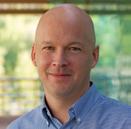
When I first started teaching, I didn’t realize the impact that federal funding and accountability would have on my career path. But, after the No Child Left Behind Act (NCLB) was passed in 2001, it was used to mandate accountability measures and school priorities for nearly 15 years.
NCLB was the only public education system/legislation I worked under — as is the case for most current school administrators — and I’ve since come to realize through my work at both the state and national levels that the NCLB legislation deeply dictated high-stakes accountability assessment and reporting for educational leaders and policy makers.
However, this educational paradigm began to change in 2015 with the passage of the Every Student Succeeds Act (ESSA). The core of ESSA is the concept of a well-rounded education and the opportunity to redefine how schools measure student success. Luckily for our field, ESSA is just the start of a bigger conversation and opportunity.
ESSA creates fundamental changes like identifying school health and physical education as part of a student’s “wellrounded education.” It allows school health educators to obtain professional development that is supported for the first time with federal funding. And, ESSA also gives tremendous flexibility to states to create their own accountability measures, thus dictating where federal dollars may be spent.
However, while ESSA has helped shift some of the conversation, it hasn’t changed the fact that local teachers need direct access to funds for improving their programs and student outcomes.
A FUNDING SOLUTION
At the 2019 National Convention & Expo in Tampa, SHAPE America officially unveiled its new servicelearning program, health. moves. minds. This program includes a fundraising component with a simple, yet important core value — to return half of the funds raised directly back to the school that raised them. That is where the greatest need has been and will be — with you and your students!
and emotionally — as well as the fundraising component that will help schools purchase equipment and resources that can make an impact for their students.
The program gives us the opportunity to clearly articulate the value of health education and physical education — not only for our students and schools, but for our society as a whole.
WHAT IF?
I’d like to propose that we consider and answer several much-needed questions, such as:
• What if health education and physical education were prioritized in school every day just like math and reading?
• What if health education and physical education were funded at the same level as science and social studies?
• What if 12th-grade educational outcomes for health literacy and physical literacy were given the same importance as ACT and SAT scores?
Funds raised through health. moves. minds. will also be critical in helping support the overall mission of SHAPE America and its state affiliates. But, this program is so much more than just a fundraising platform. It’s a statement to your school and your community about the importance of the whole child.
If schools want to really invest in whole-child outcomes, it is important those outcomes be based on improving physical literacy and health literacy. The health. moves. minds. program includes educational lessons and activities that will help teach kids to thrive physically
While these questions may seem too lofty or like impossible realities, the fact is we need a vision that can be articulated to a diverse group of policy makers and influencers. The health. moves. minds. program provides our profession exactly that. It will allow us to collectively raise the bar for those within our profession — and those outside our field.
And, if we continue to advocate what an abundance of research demonstrates — healthy, active students have greater success in school and become healthier, more productive adults — we may move the needle forward.
Spring 2019 • Momentum 5 PRESIDENT’S MESSAGE
Teachers need direct access to funds for improving their programs and student outcomes.
The Mental Health Crisis Is Here — We Need to Help
Stephanie Morris, CEO @SHAPEAmericaCEO
Afew weeks ago, I attended an IEP meeting for my son, Jamie. It was probably the best one yet. I heard about the incredible progress my kid has made this year. All the work that was put in — time with support specialists, weekly checkins with his teachers — is allowing him to have a great year in fourth grade. I couldn’t be happier.
But there was also clear agreement from the entire team of support providers and teachers regarding the one subject in which Jamie still struggles — physical education. I wasn’t surprised.
Before I continue, let me be clear — Jamie has great PE teachers. They love what they do, and they are committed to connecting with their students and implementing thoughtful, standardsbased lessons every day.
But for many kids, including Jamie, PE is a tough class in which to navigate and self-regulate. There is often a lot of noise and overall stimulation, multiple instructions to follow, and peer-to-peer relationships to navigate. All of this can cause unusual levels of stress and anxiety that are hard to manage.
I guess in some ways, I am grateful that Jamie is learning to manage and express his feelings of anxiety now, because at some point in life, most every child will experience feelings of stress, anxiety, depression and loneliness. And I wonder — will they know how to cope?
NO TIME TO WASTE
I recently spoke to Bill Casey, chair of the Physical Education Department at Neuqua Valley High School in Naperville, IL, who told me, “I have
never seen such high levels of anxiety and depression among our students. It’s like it just goes viral … and we are unprepared for how to help them.”
I have thought a lot about this conversation, and about my own son, and the fact that too many children today are experiencing unprecedented levels of stress, anxiety and depression at very young ages. We need to get through to them, to help them build skills in empathy, resiliency and stress management. We need them to know they are not alone — and there are tools,
This comprehensive service-learning program, grounded in standards-based physical activity, will also help us more intentionally foster empathy among peer groups and allow kids to learn and practice skills that work for them, because we know there is no one-sizefits-all approach when it comes to this stuff.

At its core, the health. moves. minds. program will teach kids that taking care of their mind and body, while also being kind, will help them live their best life.
BLAZING A TRAIL
Bill Casey happens to be one of the teachers who is piloting the health. moves. minds. program this spring. His school was incredibly successful in running the Jump Rope For Heart program for years, and we were grateful when he volunteered to pilot our program at a high school level, despite the fact we are initially rolling it out in grades K-8.
resources and people who can help. This is what makes the new health. moves. minds.™ program from SHAPE America so special. We know that support for young people experiencing stress, depression or anxiety often starts in the school — from a counselor, psychologist or maybe special ed teacher. The health. moves. minds. program will provide a way for teachers and school administrators to talk about these issues school-wide, further reducing the stigma surrounding mental health topics.
What really hit home for me was when Bill told me about the incredible “culture of support” that came together when he proposed the pilot to his administrators. School social workers, guidance counselors and teachers rallied, and together said, “Yes — this is the program we need for our school.”
I am so excited about everything all our pilot schools are doing to implement health. moves. minds. We are blazing a momentous trail by doing what’s right — for our teachers, our schools and our students. I hope you will join us when we roll out the program nationally in fall 2019. Our kids are depending on us and we can’t fail them.
FROM THE CEO 6 Momentum • Spring 2019
Our kids are depending on us and we can’t fail them.
Welcome to Our New Board Members
PRESIDENT-ELECT
Roger Jackson
Adjunct Professor, Wayne State University, Detroit, MI

Roger Jackson has been actively involved in the physical education profession for more than four decades, teaching and coaching in K-12 schools for 30 years, then at the college level. He also served as executive director of SHAPE Michigan for 10 years. Roger advocates for HPERD causes at the local, state and national levels — and has attended every SHAPE America SPEAK Out! Day. He has served on, and chaired, numerous state and national committees, including the NASPE Public Policy Advisory Committee, and recently the Society for Association Management (SAM). Currently, he is an adjunct professor at Wayne State University and supervises student teachers.
DIRECTORS
Sarah Benes
Associate Clinical Professor, Merrimack College, North Andover, MA
Sarah Benes is an associate clinical professor in the School of Health Sciences at Merrimack College. Her research interests include skills-based health education, physical activity in the classroom, and enhancing schoolbased physical and health education programming. Prior to that, Sarah worked as an assistant athletic trainer at Boston University before she transitioned to program director of Physical and Health Education Programs for six years. She earned her B.S. in athletic training from the University of Connecticut and received her Ed.D. in curriculum and teaching and her Ed.M. in human movement from Boston University.
Clayton Ellis
Comprehensive Health & Wellness Teacher, Mrachek Middle School, Aurora, CO
Clayton Ellis has 35 years in K-12 health and physical education. He is a past president of SHAPE Colorado and SHAPE America Central District. He has served as chair of the SHAPE America Nominations Committee and is also past president of the Colorado Governor’s Council for Active and Healthy Lifestyles. Clayton has participated in the Physical Best Specialist Program, on the PE Metrics Task Force, and on the Presidential Youth Fitness Program Professional Development Task Force and is a Champion Trainer. Clayton is one of six individuals who have participated in every one of SHAPE America’s annual SPEAK Out! Day advocacy events in Washington, DC.
JOIN OUR NEW FACEBOOK GROUP!
SHAPE America’s new private Facebook group allows our community to come together to discuss issues, post photos/ videos, and share content relevant to health and physical education. We can’t wait for you and your colleagues to join us!
Join at facebook.com/groups/shapeamerica
2019-20
SHAPE AMERICA BOARD OF DIRECTORS
PRESIDENT
Jamie Sparks
School Health Program Manager, ETR Morehead, KY
PRESIDENT-ELECT
Roger Jackson Wayne State University, Detroit, MI
PAST PRESIDENT
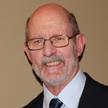
Judy LoBianco Livingston School District, Livingston, NJ
DIRECTORS
Kymm Ballard Campbell University, Buies Creek, NC
Sarah Benes Merrimack College, North Andover, MA
Clayton Ellis
Mrachek Middle School, Aurora, CO
Brett Fuller Milwaukee Public Schools, Wisconsin
Amy Heuer St. Mary’s Academy, Bismarck, ND

Ann Paulls-Neal
Wherry Elementary School, Albuquerque, NM
Mario Reyna McAllen ISD, McAllen, TX
Anne S. Wiggin
Iotla Valley Elementary School, Franklin, NC
For more information, visit shapeamerica.org/about/leaders
Spring 2019 • Momentum 7 NATIONAL OFFICERS
TIPS for Integrating Social and Emotional Learning Into Your Class
The following health and physical educators represent several of SHAPE America’s Impact Schools — 10 high-need schools selected in 2018 through the new Impact Schools Grant Program.
Here these HPE professionals share their advice for integrating social and emotional learning (SEL) into the health and physical education classroom.
Peter Crescimmani Laurelton-Pardee Intermediate School
Rochester, NY
Our students’ SEL foundation is constructed through a cooperative games unit at the start of the school year which focuses on communication, cooperation and collaboration. SEL skills learned during that time can then be applied throughout the year in various situations. Even one simple activity like “Crossing the River,” which has many variations/ adaptations, exposes students to a treasure trove of SEL skills such as perseverance, teamwork, honesty, resiliency, goal setting, problem solving, conflict resolution, and planning. Many of the activities we teach in that unit were learned through Project Adventure, and I recommend connecting with colleagues to get ideas for cooperative activities and starting off your school year with this unit!
Betty Kern
Schrop Intermediate School
Akron, OH
@Betty_Kern
We support SEL at Schrop by encouraging students to focus on setting goals, as well as reflecting on and improving personal performance. This improves selfconfidence and self-esteem! For example, students set a goal for trail races throughout the year. All students who improve earn a reward at a school assembly. One sixthgrade boy stated — with a big smile on his face — that this running award was the first award he’d ever received at school!
Casey Nadeau
John
J. Stefanik School
Chicopee, MA
It’s important to come in each day with a positive attitude. Understanding the challenges students may be facing day to day and having an open mind about their struggles will be helpful when they are having a difficult time controlling their emotions. Stefanik School has adopted a growth mindset model which is used by both teachers and administration. Having a positive attitude makes a huge difference for our Stefanik Stars.
Carlye Satterwhite
learning, leaders need to provide teachers with opportunities to plan intentional strategies for their classrooms to address SEL competencies in student-centered, asset-based environments. Each professional development opportunity should model SEL strategies such as walk and talk topics (social awareness/relationship skills; practice active listening), body scans (self-awareness; identify body awareness/moods and feelings), and goalsetting (self-management; data-driven goals aligned to overall program needs).
Andrew Smosna Itinerant APE Specialist Ridgecrest, CA
Des
Moines Public Schools
Des Moines, IA
@satterwhitecarl
While physical education provides natural opportunities to promote social and emotional
As a sport and exercise psychology consultant and adapted PE teacher, I work with countless individuals within the area of social and emotional learning. The key is to integrate social and emotional learning strategies as a routine function within the classroom curriculum. Establishing processes such as goal setting (individual and team), reflecting on these goals through metacognition (on an individual and team level), discussing and redefining “failure” as a system for learning and adaptive goal setting, and journaling can greatly improve social and emotional learning within your classroom.





6 8 Momentum • Spring 2019 TEACHER TO TEACHER
Tara Stemsrud Meredith Middle School
Des Moines, IA
@tarastemsrud
@IBMYPHuskyPE
SEL is an everevolving area based solely on the students’ needs. For many of my students, trust is difficult. Most didn’t want to participate due to lack of trust with classmates. The best thing I found for my students was to create a single team for them to operate in all semester. Students stay with the same set of four classmates for all activities during the semester, including warm-ups, team games, and partner activities. They learn to trust each other on a more emotional level. The timid become risk-takers and the followers become leaders. I never place more than four students on a team, and I’ve found that this method has eliminated students’ anxiety over finding a partner or a team.
Shaun Walters Buford Middle School
Charlottesville, VA
At the beginning of the year, we go over a variety of specific social skills and what each skill looks like in a class, with friends, at home, and out in public. As I see students demonstrating one of those skills throughout the year, I give them a shout-out and share with the class what specific skill the student demonstrated. Social skills lessons help develop character, enhance a student’s ability to deal with common or challenging situations in an appropriate tone and vocabulary, and create skills-based behavior management.
Learn More About SEL in Health & PE
This summer, SHAPE America will hold its inaugural Professional Learning Institute, which is themed Exploring the Mind-Body Connection: Social and Emotional Learning in HPE. The event will be held July 31-August 1 and is co-hosted by SHAPE America’s Western District and Central District.
MIND- BODY CONNECTION
Here are just a few of the many SEL sessions you’ll find at the conference:
• A Teacher’s Role in Eliminating Issues With Student Bullying

• Bringing Social and Emotional Learning Competencies Alive Through Skills-Based Health Education
• Building Belonging in an Overly Connected Society
• Connecting Skills-Based Health, SEL, and Restorative Justice Best Practices

• Conquering Stress: A Fulfilling Journey to Health, Wellness and Resiliency
• Cultural Competency and Mental Health Disparities
• Incorporating the Development of Emotional Awareness Into Elementary Physical Education
• Infusing Social and Emotional Learning in Physical Education
• Integrating Mental Health Education Into Health and Physical Education
• Self-Actualizing Instruction in Secondary Physical Education
• SEL-ing Physical Education!
• Social and Emotional Learning Starts in Health Education
• The Compassionate Schools Project: Social and Emotional Learning, Mindfulness and Movement
• Universal Design: Creating Lessons to Include All Learners
• You May Be Teaching SEL But Are You Assessing It?
shapeamerica.org/events/sel
Spring 2019 • Momentum 9 TEACHER TO TEACHER (continued)
July 31–August 1, 2019 | SIOUX FALLS, SD
EXPLORING THE
SOCIAL AND EMOTIONAL LEARNING IN HPE
SPEAK Out! Day Success
By Carly Wright @CWrightHPE
In an effort to educate more than 100 new members of Congress about the importance of a well-rounded education within the bipartisan Every Student Succeeds Act (ESSA), SHAPE America and its members headed to Capitol Hill on March 6.

More than 150 health and physical educators representing 39 states participated in our 12th annual SPEAK Out! Day event — conducting more than 200 meetings with lawmakers to advocate for full funding to support professional development for teachers as well as health and physical education programs in schools.
Under Title IV, Part A of ESSA, schools will receive funding to support a well-rounded education (which includes health and physical education), safe and healthy student programs, and effective use of technology. Congress funded Title IV, Part A at $1.1 billion and $1.17 billion in FY18 and FY19 respectively.
STANDING OUT ON THE HILL
It was clear that SHAPE America’s voice is resonating in the halls of Congress as many Capitol Hill police, congressional staffers, and members of Congress recognized our advocates’ signature neon sneakers and knew that “the PE teachers are here!”
During SPEAK Out! Day meetings on Capitol Hill, HPE advocates offered insight and perspective on the negative impact of marginalizing health and physical education in schools. They also shared success stories and the links that exist between health, physical education, social and emotional learning, and academic achievement.
In addition to pushing for full funding for Title IV, Part A, advocates also asked Congress to support continued funding for Title II, Part A, which supports professional development for all school employees, including for health and physical education teachers.
This new session of Congress brought not only new legislators to Capitol Hill, but also new committee leadership that will oversee federal education issues — giving us an important opportunity to develop new champions in Congress for health and physical education.
As Congress reconciles appropriations for FY 2020 and beyond, it’s critical
that the health and physical education community continues its strong advocacy efforts for this important funding stream for schools.
SHARE YOUR ADVOCACY STORY
Have you seen our collection of advocacy success stories in the SHAPE America Legislative Action Center? We share these stories far and wide — with teachers, school administrators, and even members of Congress. They are vital to maintaining Title IV, Part A funding year after year and are wonderful examples to encourage other health and physical educators to take action.
Do you have an advocacy story of your own to contribute? Maybe you spoke at a local school board meeting or accessed ESSA funds in your school for professional development or curriculum resources. Whatever it is, we’d love to hear about it! Visit shapeamerica.org/advocacy for details.
10 Momentum • Spring 2019 ADVOCACY
SHAPE America’s voice is resonating in the halls of Congress.
Create a Caring Community
Health and physical educator Christine Botti reflects on how SEL has strengthened her students

My journey to better understand social and emotional learning (SEL) and its connection to health and physical education began about two years ago. While we were evaluating our health education curriculum, an administrator asked where social and emotional learning was being taught in our program.
I decided to do some research and familiarized myself with the widely used framework developed by the Collaborative for Academic, Social, and Emotional Learning (CASEL). The framework includes five core SEL competencies: self-awareness, self-management, social awareness, relationship skills, and responsible decision-making.
school and life. I also believe that the health and physical education standards do this — so how do we intentionally make connections between all of them?
I started by going back through my lessons, where I looked for the natural relationships both direct and indirect. I then used the skills identified by CASEL to enhance my current lessons. I found that when I looked at lesson activities and objectives through an SEL lens, small adjustments had big impact.
Personally, one of the easiest places for me to start incorporating SEL skills was by looking at the competencies of selfawareness and self-management. In the classroom, in the gym, and on an athletic field, emotions affect all of us in many ways. Students and athletes can struggle with the regulation and impact of their emotions.
SEL focuses on these skills and helps create a “toolbox,” which can be used to help students identify feelings and recognize how their body is responding to those feelings. In my classes and other interactions with students, I now spend more time practicing mindful activities. We work to reflect and self-evaluate in order to address and strengthen the skill of self-awareness.
I realized the correlation between those competencies and the health and physical education standards was undeniable. As I began to deepen my knowledge of social and emotional learning, I was able to affirm my notion that SEL naturally embeds itself into health, physical education and athletics.
A STRONG FOUNDATION
The five SEL competencies set up students for success in the classroom,
IMPACT ON ACADEMICS
My next strategy was to begin using the SEL competencies as a way to strengthen the classroom community. When our classrooms honor SEL skills, they become environments in which students feel welcomed, safe and able to be themselves, and thus, academic improvement follows.
By having a better understanding of SEL and incorporating it into the classroom environment, I have been
For 13 years, Christine Botti has been teaching health and physical education at Friends Academy in Locust Valley, NY. She is cocoordinator of the health education curriculum and has taught both health and physical education in the Lower, Middle and Upper School. She also coaches field hockey, softball and cheerleading. Along with her work in health, physical education and athletics, Christine is an Upper School advisor and a member of the school’s Quaker Practice and Community Engagement Team. She can be reached at christine_botti@fa.org
able to consciously create routines and checkpoints within my class. This allows all students a pathway to feel heard, valued and connected to the class. In my personal experiences, I have found this to be invaluable. I have witnessed students connecting to the lessons — and to each other — in a deeper and more meaningful way.
An important part of what I have learned is that by committing to an educational framework that integrates SEL into the academic setting, we are intentionally helping students develop these skills all while supporting and increasing academic performance.
SEL places emphasis on core values and life skills, which leads to improved behavior, increased self-esteem, and greater empathy among students. And, when you integrate SEL into all facets of your school, it can lead to the creation of a more caring community.
Spring 2019 • Momentum 11 REFLECTION
SEL competencies set up students for success in the classroom, school and life.
Fostering Social Inclusion Through Unified PE
By Larissa Kulczycky
For decades, Special Olympics has provided children and adults with intellectual disabilities the opportunity to participate in year-round sports training and athletic competition. And, after 50 years, the organization has grown to include more than 5 million athletes in over 170 countries.
But Special Olympics is so much more than just an international athletic competition. Every day, in more than 6,500 Special Olympics Unified Champion Schools® across the country, K-12 educators and students — of all abilities — demonstrate the very best of the human spirit and experience the benefits of inclusion.
Each Unified Champion School provides inclusive physical activity and leadership opportunities for students with and without intellectual disabilities, in addition to holding wholeschool awareness activities. The result is a school community that promotes acceptance for all.
Health and physical educators generally play an integral role at Unified Champion Schools — often serving as coach for the Special Olympics Unified Sports team — and a growing number of HPE teachers are expanding their school’s inclusive educational opportunities even further through a program called Unified Physical Education.
SHAPE America member Lisa Smith is one of those teachers.
UNIFIED PE IN MINNESOTA
Smith is a health and developmental adapted PE (DAPE) teacher and Special Olympics coach at Proctor High School, a Unified Champion School in Proctor, MN. A few years ago, she wanted to find a way to “do something more” with her DAPE classes and get more students involved — just like the school was doing with its Unified Sports team.
In 2016, during a meeting with her principal and a representative from Special Olympics Minnesota, Smith learned about Unified Physical Education and decided to pilot
the course. That first year, Smith’s class had 21 students, a mix of those with and without disabilities. From the very start, the Unified PE course was popular — and it quickly became obvious that the class would have enormous benefits for the students enrolled, as well as the greater school community.
“The kids made friendships they never thought they would have,” says Smith. “They began eating together in the cafeteria and planning social events together outside of school.”
Smith began spreading the word about Unified PE by speaking at conferences throughout the state, as well as at SHAPE America district conferences and the 2017 SHAPE America National Convention & Expo. The program has spread throughout Minnesota, going from two pilot schools in 2016 to more than 86 schools offering the course during the 2018-19 school year.
Now, with several years of teaching Unified PE under her belt, Smith is beyond enthusiastic about all the positive changes for her students.
“The biggest impact has been the beginning of closing the gap between special education and general education,” says Smith. “Students are held to the same expectations in this class, not only by me as their teacher, but by each other.”
All of the students in the Unified PE class have opportunities to build leadership skills, and they have even become unofficial ambassadors of school- and community-wide inclusion.

“Our school culture is shifting,” says Smith. “My fellow teachers and administration have been working on how to bring the Unified movement into their classrooms, in the hallways, and the community.”
A HEALTHIER TRIBAL COMMUNITY
More than 1,100 miles away in Mississippi, SHAPE America member Amanda Reed is also finishing her third full year implementing Unified PE. An adapted physical education
12 Momentum • Spring 2019
Students in Lisa Smith’s Unified PE class at Proctor High School.
teacher, Reed serves Choctaw Central High School and Choctaw Central Middle School, which are part of the Choctaw Tribal Schools district.
Reed teaches one Unified PE class in each school. Both classes meet five days a week for 50 minutes and have a oneto-one ratio of general education students and students with disabilities. She says this ratio allows the students to bond.
“The biggest impact I have seen is in the social skills that are achieved and the relationships that are formed,” says Reed. “Our students with disabilities are more willing to interact and branch out of their comfort zones.”
Because of the increase of diabetes and other critical health issues among Native Americans, Reed used two additional Special Olympics programs — “Unified Fitness Clubs” and “Fit 5” — to jumpstart her efforts to promote health and wellness in her class — which she hopes will help the tribal community become healthier as well.

Students with and without disabilities are learning about healthier food options such as fruits and vegetables. They are also learning to love exercise — and have begun seeing improvements in their overall health.
SHAPE America and Special Olympics: 50 Years and Counting
The American Association of Health, Physical Education and Recreation (AAHPER) — now SHAPE America — was deeply involved in the creation of Special Olympics, even before its founding in 1968.
April 1965 — Kennedy Foundation-AAHPER committees begin work on organizing year-round national fitness programs for people with intellectual disabilities. The programs task force includes chair Julian Stein, author of a groundbreaking article on adapted physical education for students with intellectual disabilities that had been published in AAHPER’s Journal of Health, Physical Education and Recreation in 1962.
June 1965 — Eunice Kennedy Shriver announces a new nationwide program — a joint venture by the JPK Jr. Foundation, the President’s Council on Physical Fitness, and AAHPER — saying, “We are witnessing here today the opening of an unprecedented new era for people with intellectual disabilities in schools, summer camps and yearround programs.”
June 1966 — Julian Stein becomes full-time director of the AAHPER program under the direction of the JPK Jr. Foundation.
July 1968 — The first International Special Olympics Games are held in Chicago at Soldier Field. The event is described as “daybreak” — the early stirring of a global movement for people with intellectual disabilities.
“Some of our students with disabilities lead sedentary lifestyles after they graduate high school,” says Reed. “These programs help educate them and build a desire to sustain and maintain healthy lifestyles throughout their lives.”
SPREADING INCLUSION
At its 50th anniversary celebration in 2018, Special Olympics launched a new campaign — The Revolution is Inclusion — designed to end discrimination against people with intellectual disabilities and deliver a fully inclusive world. Health and physical educators can play their part in many different ways — from implementing Unified Physical Education, to starting a Unified Fitness program, to coaching their school’s Unified Sports team.
“There is no one way to do Unified PE,” says Smith. “It can happen in any school, big or small. It can be a stand-alone class or be put right into an existing class. It can look any way that is right for each school and community.”
September 2008 – Special Olympics launches the Unified Champion Schools program with the goal of uniting students with and without intellectual disabilities through inclusive sports, leadership, and whole-school awareness activities.

July 2018 — Special Olympics kicks off its year-long 50th Anniversary Celebration in Chicago.
To learn more about Unified PE, check out the Unified Physical Education Resource Guide, co-authored by SHAPE America members Mike Messerole and Sue Tarr. You can find links to this and other resources at shapeamerica.org/unified
Spring 2019 • Momentum 13
Chino Valley High School, AZ 1.29.17
SpecialOlympicsUnified PhysicalEducationResources
UnifiedChampion SchoolsSpecialOlympics
Amanda Reed’s Unified PE students at Choctaw Central High School enjoy an outing to the local bowling alley.
Building a Kinder, Healthier Future
Students and schools benefit from new service-learning program — health. moves. minds.™
 By Larissa Kulczycky
By Larissa Kulczycky
Across the country — at all grade levels — schools are seeing growing numbers of students with anxiety, depression, and other mental health challenges. It’s getting harder and harder for young people to cope with societal pressures, bullying and other sources of stress.
These alarming trends spurred the development of health. moves. minds. — the new educational service-learning program from SHAPE America and its national partner, Gopher.
The health. moves. minds. program teaches young people how to take care of their mind and body while developing important character traits such as kindness and empathy. It includes skills-based and standards-based classroom and event resources for teachers as well as a fundraising component. After being piloted this spring by 21 schools, the program will kick off nationally in fall 2019.
Physical education
teacher Kyle Salvo is coordinating the pilot program at Twin Chimneys Elementary School in O’Fallon, MO. “Students are under so much more stress now than they were 10, 15, 20 years ago,” says Salvo. “The health. moves. minds. lessons are geared to help students learn to cope with stress so they can regulate it before it becomes too much for them to handle.”
EDUCATIONAL RESOURCES
The supplied lessons, which align directly to both SHAPE America’s National Standards for K-12 Physical Education and the National Health Education Standards, have a strong physical activity component and can be incorporated into each participating school’s health or physical education program.
There are three grade bands addressed: K-2 and 3-5 at the elementary level and 6-8 at the secondary level. Each grade band has four full standards-based lessons, which are easy to incorporate into teachers’ existing curriculum, making the program easy to implement.

Teachers can easily modify each lesson to meet their students’ specific needs — or use the lesson in its entirety. Each level also has a corresponding mental wellness component, either kindness, mindfulness or empowerment.
“What I love about the lessons is the mindfulness part,” says Annette Ice, a National Board Certified Teacher at Overland Elementary School in Rock Springs, WY, another pilot school.
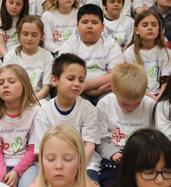
“The more I teach, the more I realize that students come to me without coping skills. Even something as simple as not getting to play the game they wanted sends some students into an emotional spiral that takes several minutes to recover from. Telling students to calm down sounds like the best answer,

except these students have no idea how to calm down, or how to prevent it from happening again.”
“This program gives me the tools to teach students these skills — how to be mindful of how they are feeling and how to take steps to right their ship,” she continues. “What an incredible gift to give a student!”
14 Momentum • Spring 2019
My students’ success is the most important thing, and with this new program the sky is the limit!
Students take part in a “mindful minute” activity at Sibley East Elementary School in
The 5th grade kindness wall at Odessa Upper Elementary School in Odessa, MO.
CARING COMMUNITIES
In addition to integrating lessons into their health and physical education program, teachers can engage other classroom teachers, the whole school, and the community at large — through school assemblies, parent engagement activities, and other community events, as desired. And, schools get to decide how they create and hold these events.
Many of the pilot schools planned physical activity events, including a family fun run, school-wide field day, glow-in-the-dark fun run, family bike ride, family health night with obstacle course, “run for joy,” and more.
Several schools also incorporated activities and events relating to emotional health, such as creating a “kindness wall” and holding a “serenity week” with a different theme for each day, such as kindness, mindfulness, empowerment, advocacy, and gratitude.
FUNDRAISING RESOURCES
All participating schools have access to a free, easy-to-use online platform that streamlines fundraising logistics and increases donations through social sharing. Students, teachers, staff, families, and community members can all raise money for their school team.
Up to 50% of funds raised by schools will benefit the school directly, providing essential funds for the equipment and resources that improve students’ physical and mental health. An equitable percentage of funds raised will go back to SHAPE America and participating state affiliates.
“health. moves. minds. is a game changer,” says Briana Fuller, physical education and health teacher at Harrison Elementary School in Green River, WY. “My students’ success is the most important thing, and with this new program the sky is the limit! With this fundraiser we will be able to make big dreams a reality!”
Many thanks to our pilot schools and coordinators!
Archbishop Bergan Catholic School — Fremont, NE (Wyatt Morse)
Bell Creek Intermediate School — Bellbrook, OH (Sasha Taylor)
Coolidge Elementary School — Oklahoma City, OK (Katie Barton)
El Dorado Elementary School — San Antonio, TX (Brandon Turner & Danielle Norman)
Hamilton Elementary School — Port Angeles, WA (Krista Winn)
Harrison Elementary School — Green River, WY (Briana Fuller)
Jessup Elementary School — Cheyenne, WY (Randy Siltzer)
Lafayette Elementary School — Washington, DC (Marjorie McClure)
Loma Vista Middle School — Riverside, CA (Patti Suppe)
Lords Park Elementary School — Elgin, IL (Scott Park)
Macdonough Elementary School — Middletown, CT (Amanda Amtmanis)
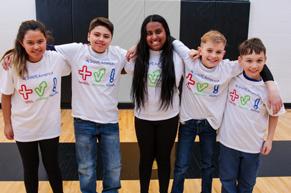
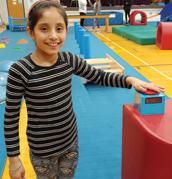
Neuqua Valley High School — Naperville, IL (Bill Casey)
Odessa Upper Elementary School — Odessa, MO (Kristi Bieri)
Overland Elementary School — Rock Springs, WY (Annette Ice)
Sherman Middle School — Madison, WI (Niki Richter)
Sibley East Elementary School — Gaylord, MN (Kirsten Guentzel)
Spencer Elementary School — Middletown, CT (Amanda Amtmanis)
Thorson Elementary School — Cedarburg, WI (Patty Kestell)
Twin Chimneys Elementary School — O’Fallon, MO (Kyle Salvo)
Westside Elementary School — Reedsburg, WI (Brenda Erdman)
Wherry Elementary School — Albuquerque, NM (Ann Paulls-Neal)
Spring 2019 • Momentum 15
healthy habits, fuel active minds, and teach kids to thrive physically and emotionally.
healthmovesminds.org.
A student at Bell Creek Intermediate School in Bellbrook, OH, completes the obstacle course as part of the health. moves. minds. kickoff event. Students at Sibley East Elementary School in Gaylord, MN.
Inspire
Learn more by signing up at
A Look Back at #SHAPETampa

Highlights from an EPIC national convention!
If you’re one of the more than 4,000 health and physical education professionals who attended the SHAPE America National Convention & Expo in April, you probably have some favorite memories of your time in Tampa. It certainly was a week to feel energized and inspired!
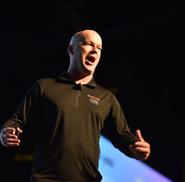



For those who weren’t able to attend the 2019 convention, now is the time to start planning for 2020 in Salt Lake City (April 21–25). Learn more at convention.shapeamerica.org

NATIONAL CONVENTION HIGHLIGHTS shapeamerica.org/convention 16 Momentum • Spring 2019
The Opening Celebration — complete with karaoke — was a smash!
Hip hop icon DMC had attendees on their feet during the Opening General Session.
After witnessing Hillary and Jeff Whittington’s moving keynote presentation about raising a transgender child, attendees flocked to the Raising Ryland book signing.
The free Fuel Up to Play 60 NFL FLAG-In-Schools Training workshop was a big hit!
inclusion and educating the whole child.
2019 SHAPE America Award Winners
Congratulations to the following national award recipients and lecturers, who were recognized at the SHAPE America National Convention & Expo in Tampa.
ADAPTED PHYSICAL EDUCATION/ACTIVITY GRADUATE STUDENT OF THE YEAR AWARD
Adam Pennell, University of South Carolina
ADAPTED PHYSICAL EDUCATION PROGRAM OF THE YEAR AWARD University of New Hampshire

BARBARA A. COOLEY MASTER’S HEALTH EDUCATION SCHOLARSHIP
Danielle LaRocque, Cambridge College, MA
BILL KANE UNDERGRADUATE HEALTH EDUCATION SCHOLARSHIP
Rebecca Houston, Utah State University
C.H. MCCLOY LECTURE
Lecturer: Mary O’Sullivan, University of Limerick, Ireland
CURRICULUM & INSTRUCTION
HONOR AWARD
Ping Xiang, Texas A&M University
Stephen Harvey, Ohio University
E.B. HENDERSON AWARD
John Strong, Niagara County Community College, NY
GUIDING WOMAN IN SPORT AWARD
Sue Zipay, All-American Girl’s Professional Baseball League Player
HALL OF FAME AWARD
Jayne Greenberg, Retired, District Director of Physical Education and Health Literacy, Miami-Dade County Public Schools, Miami, FL

HELEN HEITMANN YOUNG SCHOLAR AWARD
Tan Leng Goh, Central Connecticut State University
JOY OF EFFORT AWARD
Carol Ciotto, Central Connecticut State University
Sally Nazelrod, SHAPE Maryland, Executive Director
JULIAN U. STEIN LIFETIME ACHIEVEMENT
Martin E. Block, University of Virginia, Charlottesville, VA
LEROY T. WALKER YOUNG PROFESSIONAL AWARD
Langston Clark, The University of Texas at San Antonio
LUTHER HALSEY GULICK AWARD
Stephen L. Cone, Professor Emeritus, Health & Exercise Science Department, Rowan University, NJ
(continued on next page)
SPECIAL THANKS TO OUR 2019 NATIONAL CONVENTION & EXPO SPONSORS
GOLD MEDAL
MVP
ALL-STAR
Goodheart-Willcox Experts in Today’s Health and Wellness

STAR
The Cooper Institute
Fuel Up to Play 60
Lü – Interactive Playground
United States Tennis Association
RISING STAR
Foundational Fitness, Inc.
New York Road Runners
The One Love Foundation Palos Sports
NATIONAL CONVENTION HIGHLIGHTS shapeamerica.org/convention
Gulick Award recipient Stephen L. Cone with Hall of Fame Award recipient Jayne Greenberg.
Spring 2019 • Momentum 17
Mary O’Sullivan delivers the C.H. McCloy Lecture.
(continued from previous page)
MABEL LEE AWARD
Catherine Abel-Berei, Southern Connecticut State University
Rebecca Lambdin-Abraham, Austin
Independent School District, TX
Risto Marttinen, George Mason University, VA
Richard Wiles, Anne Arundel County, MD
MEASUREMENT & EVALUATION
JOANNE SAFRIT LECTURE
Lecturer: James Morrow, Retired, University of North Texas
MENTOR OF THE YEAR
Ingrid Johnson, Grand Valley State University, MI
MPEES REVIEWER OF THE YEAR
Ryan Burns, University of Utah
NATIONAL TEACHERS OF THE YEAR

Adapted PE
Toni Bader, Seattle Public Schools (WA)
Western District
Dance Education
Nicole Peterson, West Fargo High School (ND)
Central District
Health Education
Scott Todnem,
Scullen Middle School (IL)
Midwest District
Elementary PE
Donn Tobin, Lakeview Elementary School (NY)
Eastern District
Middle School PE
Jennifer Mettler, Alice C. Stelle Middle School (CA)
Western District High School PE
Dan DeJager, UnSchool (CA)
Western District
NORTH AMERICAN SOCIETY OF HEALTH, PHYSICAL EDUCATION, RECREATION, SPORT AND DANCE PROFESSIONALS (NAS FELLOWS)
Jan Bishop, Central Connecticut State University, CT
Dennis Docheff, University of Central Missouri, MO
Colleen Wegimont, Retired, Souderton Area School District, PA
PRESIDENTIAL CITATIONS
Irene Cucina, Plymouth State University
Carly Wright, SHAPE America
Lynn DiCaro
Alison Hancox
RACHEL BRYANT LECTURE
Lecturer: Emily H. Wughalter, San Jose State University, CA
RAYMOND A. WEISS LECTURE
Lecturer: Louis Harrison, University of Texas at Austin

RESEARCH COUNCIL DISTINGUISHED SERVICE AWARD
Judith Rink, University of South Carolina

18 Momentum • Spring 2019 NATIONAL CONVENTION HIGHLIGHTS shapeamerica.org/convention
Duane Knudson (l) receives the SHAPE America Scholar Lecture award from Brad Cardinal.
Judy LoBianco with the 2019 National Teachers of the Year (l to r): Donn Tobin, Scott Todnem, Nicole Peterson, Dan DeJager, Toni Bader, and Jennifer Mettler.
Louis Harrison delivers the Raymond A. Weiss Lecture.
Sponsored by School Specialty | Sportime
RESEARCH COUNCIL FELLOWS


Ryan Burns, University of Utah
Erin Centeio, University of Hawaii at Manoa
Han Chen, Valdosta State University
Langston Clark, The University of Texas at Austin
You Fu, University of Nevada, Reno
Karen Gaudreault, University of New Mexico
Jiling Liu, Texas A&M University
Kevin Mercier, Adelphi University
RESEARCH STUDENT AWARDS
Graduate
Xiaoxia Zhang, University of Texas at Arlington
Daniel McDonough, University of Minnesota
Undergraduate
Michael Napolitano, Springfield College
RQES LECTURE
Lecturer: Bradley J. Cardinal, Oregon State University
RQES WRITING AWARD
Timothy Brusseau and Ryan Burns, University of Utah
RUTH ABERNATHY PRESIDENTIAL SCHOLARSHIPS
Undergraduate
Alexis Kane, SUNY Cortland, NY
McKenzie Kirtz, University of Wisconsin La Crosse
Ellisyn Shuang Mularski, Slippery Rock University, PA
Graduate
John Rech, Masters, University of Nebraska at Kearney
Victoria Ivy, Doctoral, University of Alabama
SHAPE AMERICA SCHOLAR LECTURE
Lecturer: Duane Knudson, Texas State University

Spring 2019 • Momentum 19 NATIONAL CONVENTION HIGHLIGHTS shapeamerica.org/convention
Celebrating the health. moves. minds.™ pilot schools.
The entire HPE community came together at #SHAPETampa for an unforgettable experience!
Submit your proposal online at shapeamerica.org. SUBMISSION DEADLINE: June 27, 2019 #SHAPESLC CALL FOR PROPOSALS National Convention & Expo | April 21–25
HPE MARKETPLACE GUIDE
ASSOCIATION/ NON-PROFIT ORGANIZATION
fit — Sanford Health (605) 312-6064
www.sanfordfit.org
fit is a suite of programs and resources, created by Sanford Health, to empower children and families to do the simple things each day that make healthy lifestyle choices a habit.
United States Tennis Association
www.usta.com
The United States Tennis Association (USTA) is the national governing body for tennis in the United States. A notfor-profit organization with more than 700,000 members, it invests 100% of its proceeds to promote and develop the growth of tennis, from the grassroots to the professional levels.
CURRICULUM AND LESSONS
fit — Sanford Health (605) 312-6064
www.sanfordfit.org
fit is a suite of programs and resources, created by Sanford Health, to empower children and families to do the simple things each day that
make healthy lifestyle choices a habit.
Sworkit Youth Initiative
www.sworkityouth.com
Through the Sworkit Youth Initiative, Sworkit’s premium digital fitness technology is available at no cost to teachers, coaches and students throughout the U.S. Our goal is to reduce childhood obesity by 50% by 2026. For more information and to gain free access to Sworkit, visit SworkitYouth.com and follow @SworkitFitness on Instagram.
United States Tennis Association
www.usta.com
The United States Tennis Association (USTA) is the national governing body for tennis in the United States. A notfor-profit organization with more than 700,000 members, it invests 100% of its proceeds to promote and develop the growth of tennis, from the grassroots to the professional levels.
FITNESS TECHNOLOGY
Sworkit Youth Initiative
www.sworkityouth.com
Through the Sworkit Youth Initiative, Sworkit’s premium digital fitness technology is available
at no cost to teachers, coaches and students throughout the U.S. Our goal is to reduce childhood obesity by 50% by 2026. For more information and to gain free access to Sworkit, visit SworkitYouth.com and follow @SworkitFitness on Instagram.
HEALTH EDUCATION RESOURCES
fit — Sanford Health (605) 312-6064
www.sanfordfit.org
fit is a suite of programs and resources, created by Sanford Health, to empower children and families to do the simple things each day that make healthy lifestyle choices a habit.
PROFESSIONAL DEVELOPMENT & TRAINING
fit — Sanford Health (605) 312-6064
www.sanfordfit.org
fit is a suite of programs and resources, created
by Sanford Health, to empower children and families to do the simple things each day that make healthy lifestyle choices a habit.

United States Tennis Association
www.usta.com
The United States Tennis Association (USTA) is the national governing body for tennis in the United States. A not-for-profit organization with more than 700,000 members, it invests 100% of its proceeds to promote and develop the growth of tennis, from the grass-roots to the professional levels.
SERVICELEARNING PROGRAMS
health. moves. minds.™
www.healthmovesminds.org
Available fall 2019. Inspire healthy habits, fuel active minds, and teach kids to thrive physically and emotionally with SHAPE America’s new servicelearning program. Join us as we build a kinder, healthier future for our nation’s youth.
20 Momentum • Spring 2019
Thank you to all our Partners for Active and Healthy Children members!

SHAPE America’s Partners for Active and Healthy Children (PAHC) membership program serves as a bridge between the business and nonprofit communities and our nation’s health and physical educators.
PAHC members provide annual financial contributions that support a broad array of SHAPE America initiatives, programs and projects that promote effective health and physical education. In exchange, PAHC members will:
• Earn one (1) additional priority point for each consecutive year of PAHC membership and boost positioning for future exhibit booth selection;
• Receive an exclusive 10% discount on exhibit booth space;
• Save on National Convention and other year-round advertising opportunities; and
• Secure a listing in the HPE Marketplace Guide, included in the spring issue of Momentum
2018-2019 MEMBERS
Spring 2019 • Momentum 21
Learn more at shapeamerica.org/about/partnerships/pahc
New District Leaders
Congratulations to the following SHAPE America members, who were elected to serve on their District Leadership Council for 2019–20.
CENTRAL DISTRICT
PRESIDENT-ELECT
Taralyn Garner
Retired Plattsburg, MO
MEMBERS-AT-LARGE
Wyatt Morse
K-6 Physical Education Teacher
Archbishop Bergan Catholic School
Fremont, NE
Tracy Nelson
PETE Program Coordinator & Senior Lecturer
South Dakota State University
Brookings, SD
Lisa Smith
Secondary Physical Education Teacher
Proctor Public Schools
Proctor, MN
EASTERN DISTRICT
PRESIDENT-ELECT
John Battista
University Supervisor Central CT State University
New Britain, CT
MEMBERS-AT-LARGE
Ellen Benham Instructor
Central CT State University
New Britain, CT
Marybeth Fede Professor
Southern CT State University
New Haven, CT
Curt Martin
Retired Physical Education Teacher
Contoocook, NH
MIDWEST DISTRICT
PRESIDENT-ELECT
Patty Kestell
Physical Education Teacher
Thorson Elementary School
Cedarburg, WI
MEMBERS-AT-LARGE
Tammy Brant
Physical Education Teacher
Selma Middle School
Selma, IN
Kalie McKinley
Physical Education Teacher
Assumption High School
Jeffersonville, IN
Scott Przystas
Elementary Physical Education Teacher
Grand Haven Public Schools
Grand Haven, MI
SOUTHERN DISTRICT
PRESIDENT-ELECT
Hollie Newnam
Executive Director of SHAPE Florida
Retired
Port Orange, FL
MEMBERS-AT-LARGE
Ashley Grimes
Specialist, PreK-12 Physical Education and Health Education
Pinellas County Schools
Parrish, FL
Gina Mabrey
Interim Department
Head of Kinesiology and Program Chair
Jacksonville State University
Southside, AL
Lynn Williamson
Supervisor of Health & Physical Education and Athletics
East Baton Rouge Parish School System
Baton Rouge, LA
WESTERN DISTRICT
PRESIDENT-ELECT
Lynn Preble
Physical Education Teacher
Highland Junior High School
Mesa, AZ
MEMBERS-AT-LARGE
Brian Kessler
Physical Education Teacher
Helena High School
Helena, MT
Brent Powell
Associate Professor
California State University, Stanislaus
Modesto, CA
Southern District Award Recipients
Congratulations to all 2019 Southern District award recipients!
DONNA L. DUNAWAY MEDAL
Bill Dickens
Northwestern State University (LA)
HONOR AWARD
Charity Bryan
Kennesaw State University (GA)
TAYLOR DODSON YOUNG PROFESSIONAL AWARD
Ashley Grimes
Pinellas County School District (FL)
W. CLYDE PARTIN SERVICE AWARD
BlueCross BlueShield of Alabama
Healthy Schools Oklahoma
SOUTHERN DISTRICT SCHOLAR
AWARD
Matthew Curtner-Smith
University of Alabama (AL)
ETHNIC MINORITY AWARD
Felicia Ceaser-White
Houston Independent School District (TX)
SPORT PROFESSIONAL OF THE YEAR AWARD
Terry Shannon
Oral Roberts University (OK)
RECREATION PROFESSIONAL OF THE YEAR AWARD
Patrick Shremshock
University of North Alabama (AL)
FUTURE PROFESSIONAL AWARD
Erin Dang
University of Central Oklahoma (OK)
COLLEGE/UNIVERSITY PHYSICAL EDUCATOR OF THE YEAR AWARD
Sandra Sims
University of Alabama
Birmingham (AL)
Central District, Eastern District, and Midwest District award winners, as well as all District Teacher of the Year recipients, were announced in the Winter 2019 issue of Momentum. Western District award winners will be announced at a later date.
DISTRICTS 22 Momentum • Spring 2019
July
RELATIONSHIP SKILLS
DECISION MAKING
SELF-MANAGEMENT
SOCIAL
PHYSICAL
HEALTH
DISTRICTS (continued) Spring 2019 • Momentum 23 Join SHAPE America this summer as we explore social and emotional learning competencies and identify ways to teach and assess SEL skills in the health, physical education and physical activity settings.
Topic areas will include:
ADVOCACY & LEADERSHIP
AND AWARENESS
AWARENESS
1,
EDUCATION (STANDARDS
2, & 3)
Register Today!
EDUCATION To learn more, visit shapeamerica.org/events/sel
31–August 1, 2019
EXPLORING THE
AND EMOTIONAL LEARNING IN HPE
SIOUX FALLS, SD
MIND- BODY CONNECTION SOCIAL
Focus on Health & PE
Twitter Chats
SHAPE America Twitter Chats
WEBINAR:
Join us as we share ideas and learn about best practices in skills-based health education and physical education. Past chats have covered teaching health literacy, mindfulness, mental wellness & PE, and more! Follow #SHAPEHealthEd and #SHAPEPhysEd for upcoming dates and topics.
New!
#SHAPEHealthEd #SHAPEPhysEd
Creating Active Citizenship Through Physical Education & Dance
Free Access Health Articles
The American Journal of Health Education includes research findings, community learning strategies, and recent health promotion trends. And, each digital issue includes one article that is open to all — no subscription required! Learn more at shapeamerica.org/publications/ journals/ajhe.

School-Based Employee Wellness Resources
SHAPE America has compiled several resources and tools that can be used to gain support for — or enhance — your school-based employee wellness program, including:
n CDC Workplace Health Program: Actionable information to launch or expand a workplace health promotion program

n CDC School Health Index: Online self-assessment and planning tool which includes an Employee Wellness and Health Promotion module
n WellSAT 2.0: An assessment tool to measure the quality of written wellness policies
n SHAPE America Position Statement: Supporting the Implementation of School-Based Employee Wellness
Find these resources and more at shapeamerica.org/employeewellness
This on-demand webinar is presented by SHAPE America’s 2017 National Dance Education Teacher of the Year. Participants will learn how to activate students’ voices through resonant and relevant physical education and dance. Learn more at shapeamerica.org/webinars
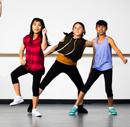
New Books
Physical Best: Physical Education for Lifelong Fitness and Health, 4th Edition

Physical Best, 4th Edition, is an all-inclusive resource that combines its three previous books in one, offering more than 100 activities for K-12 students on its web resource. The text is updated to address the SHAPE America National Standards and outcomes and to reflect the latest research and best practices.
Comprehensive School Physical Activity Programs: Putting Research Into Evidence-Based Practice

This all-in-one resource synthesizes the research, theory and practice on comprehensive school physical activity programs. It also delves into assessment, evaluation, advocacy, policy, partnerships, technology, and more. Suitable for K-12 teachers, PETE faculty and students, and researchers.
Learn more at shapeamerica.org/publications.
24 Momentum • Spring 2019 RESOURCE
ROUNDUP
Updates From the Research Council
Tim Brusseau, Research Council Past Chair
Hans van der Mars, 2019 National Convention Research Program Chair
The research program at this year’s SHAPE America National Convention & Expo was extremely successful, with more than 240 presenters. The 2019 program included five symposia, five poster sessions, five regular oral presentations, and three roundtable oral sessions.
Attendees also heard four excellent scholar lectures offered through the convention’s Distinguished Lecture Series:
• C.H. McCloy Research Lecture Global Challenges for Physical Education Teacher Educators in the Modern University Mary O’Sullivan, University of Limerick, Ireland
• Raymond A. Weiss Lecture
The Politics of Physical Education, Physical Activity & Sport

Louis Harrison, University of Texas at Austin
• RQES Lecture
Scientific Support for Required Physical Activity Education Among College and University Students
Bradley J. Cardinal, Oregon State University
RQES: Free Access Articles
• SHAPE America Scholar Lecture
Challenging Assumptions and Evidence-Based Practice in Physical Activity Duane Knudson, Texas State University
NEW RESEARCH COUNCIL FELLOWS
We’re excited to announce our newest group of Research Council Fellows, who were honored during the 2019 national convention in Tampa. They are:
• Ryan Burns, University of Utah
• Erin Centeio, University of Hawaii at Manoa
• Han Chen, Valdosta State University
• Langston Clark, The University of Texas at Austin
• You Fu, University of Nevada, Reno
• Karen Gaudreault, University of New Mexico
• Jiling Liu, Texas A&M University
• Kevin Mercier, Adelphi University
SHAPE America Research Fellow status is reserved for members who have made significant and sustained contributions to research, creative or scholarly activity, as well as related service.
NEW RESEARCH COUNCIL MEMBERS
The following SHAPE America members began their appointments to the Research Council following the conclusion of the national convention in Tampa:
• Sue Sutherland, The Ohio State University
• Ali Brian, University of South Carolina
In addition, Jennifer Walton-Fisette (Kent State) has begun her term as 2019-2020 Research Council chair.
Many thanks to Tim Brusseau (Utah), who recently completed his term as Research Council chair, Hans van der Mars (Arizona State), who rotated off the Research Council after completing his term as past chair, and Peter Hastie (Auburn), who rotated off the council after three years of service.
UnLock Research
Research Quarterly for Exercise and Sport (RQES) offers the latest research in the art and science of human movement studies. Published four times a year (March, June, September, December), the journal includes one “free access” article in each issue which is available to all on the SHAPE America website. For details, visit shapeamerica.org/publications/journals/rqes
UnLock Research articles are a great resource for health and physical educators who want to learn about relevant research. Each monthly UnLock Research article reviews and summarizes a recently published research study. Learn more at shapeamerica.org/research

RESEARCH
Spring 2019 • Momentum 25 p p Ph Ay -In this PE class, feel my input, interests, and/or needs are considered by the instructor survey Empowerment in Exercise Scale statements, responded on scale from (strongly disagree) to (strongly agree) began with the phrase As result of participating this physical education class Students also rate their knowledge, understanding, and beliefs on physical activity. The third scale Satisfaction With PE Physical Activity Scale student sport enjoyment and satisfaction. Students rate their enjoyment and satisfaction on a scale from 1 (strongly disagree) to (strongly agree). C n s o On average, students experienced ownership and satisfaction in their general physical education classes. Interestingly, empowerment and satisfaction in exercise were experienced in general, rather than in physical education. Female ownership in physical education was higher, compared to males nd student satisfaction was strongly to the sense of ownership experienced in physical education. Both ownership and satisfaction are needed in physical education to experience empowerment in physical activity. K y T ke wa feel empowered while doing so, hey experience enjoyment physical education. Experiences of empowerment physical education are likely to carry Ultimately, the more task-oriented physical education class is, the more students will feel empowered to participate in and enjoy physical activity. Self-efficacy, empathy and intrinsic motivation make up taskoriented climate physical education. This type of climatecontrary a ego-oriented climate in physical education competition- isplay as they practice which can lead to ocial and physical pressures important for physical educators to think about how they structure lessons tudents can experience success as they actic
QUESTIONS
With Jackie Conkle
1 What brings you the greatest joy?
Watching my children. Watching them play and love life, watching them succeed and experience the joy of accomplishment, watching them learn something new — it’s so fulfilling to watch the people they will become unfold.
2 Who inspires you?
My dad has always inspired me. He was one of the hardest working people I knew, but he also made sure to have fun and lived life to the fullest.
3 What is your favorite healthy snack?
A hard-boiled egg. Not very glamorous, I know, but satisfying.
5
How do you relieve stress? A solo walk outside is my best stress reliever.
6
What is the best advice you’ve ever been given? Just breathe.
7
What are some small things that make your day better?
Small people (my children and my students) definitely make my days better. Each day is also made better by sunshine, smiles from my husband, jokes between friends, dessert, and chocolate milk.
SHAPE America member JACKIE CONKLE has been a health teacher in Pennsylvania for 15 years. Valuing health, she is always trying to make personal and professional changes toward lifelong health.

8
What is your favorite meal and why?
4
What is your favorite physical activity?
Barrel racing on my horse is my favorite physical activity, especially because riding is something shared by my entire family.
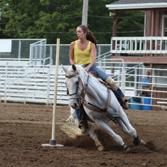
I love grilled asparagus and any real Italian food.
9 Is there something you’ve been meaning to try but haven’t gotten around to? Cleaning and organizing my house — I’m too busy living life!
10
What quote do you live by?
“How wonderful it is that nobody need wait a single moment before starting to improve the world.” —Anne Frank
Jackie has led workshops to improve physical education nationwide and is the editor of SHAPE America’s newest book, Physical Best: Physical Education for Lifelong Fitness and Health (published April 2019).
For details, visit shapeamerica.org/publications.

10 FINAL BELL 26 Momentum • Spring 2019
With the carbohydrate, potassium and energy they need, it’s no wonder athletes everywhere are choosing potatoes to perform at their best.


Visit PotatoesFuelPerformance.com for potato performance recipes, nutrition information, real athlete stories and more.
Let’s make sure they never start.
As a pharmacy innovation company committed to helping people on their path to better health, we’re playing a leading role in helping people lead tobacco-free lives.

Through our Be The First initiative, we’re investing $50 million and working with the nation’s leading anti-tobacco and youth organizations to support comprehensive education, advocacy, tobacco control and healthy behavior programming. Our goal? Help those who smoke quit, and ensure those who don’t never start.
Check out our training and curriculum for students, parents, teachers, schools and youth organizations. Topics include:

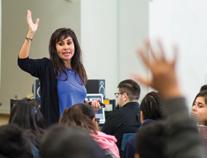
• Dangers of tobacco
• E-cigarette use
• Healthy behaviors
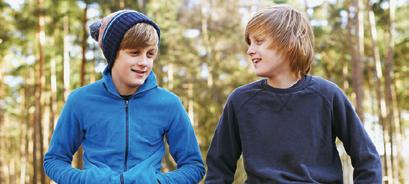
• Advocacy training
For more information, visit CVSHealth.com/BTFResources
A big thank you to our partners! Join CVS Health® to help deliver the nation’s rst tobacco-free generation.
Tobacco Prevention Toolkit tobaccopreventiontoolkit.stanford.edu !


























 By Larissa Kulczycky
By Larissa Kulczycky



































